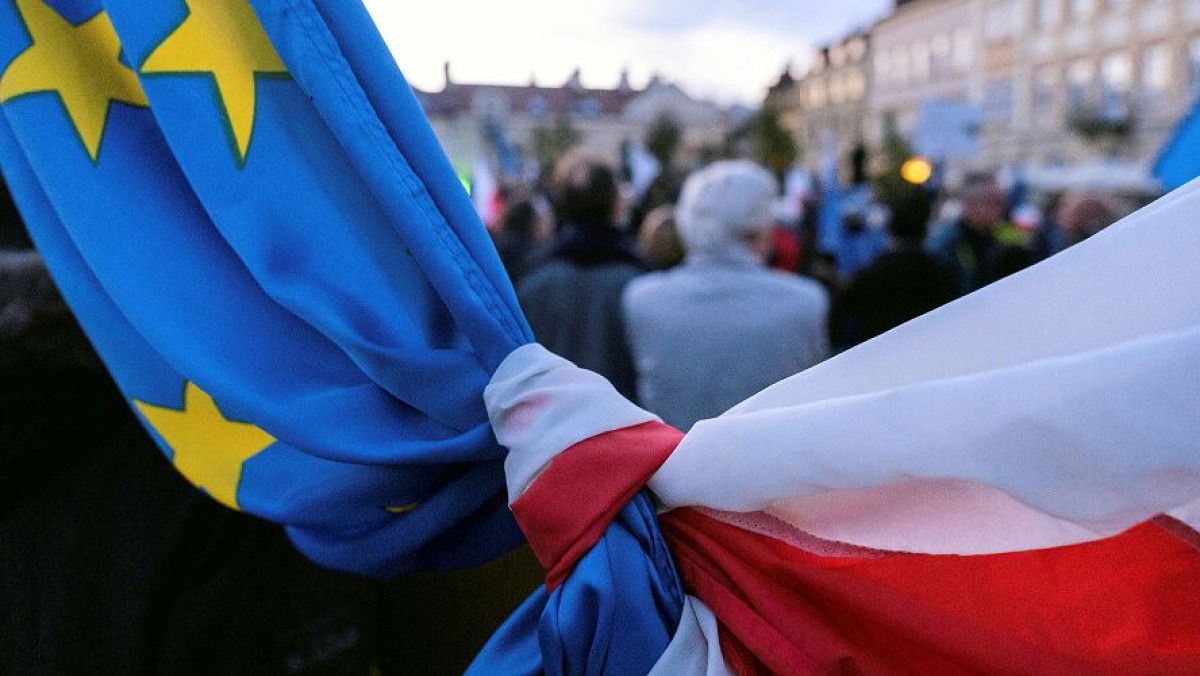1249 Views
Democracy on a Leash: How Brussels Handpicked Poland’s Next Leader
The 2025 Polish presidential election, held on May 18, laid bare the country’s deepening ideological rift between liberal and conservative camps. The showdown between Rafał Trzaskowski, the liberal mayor of Warsaw representing the Civic Platform, and Karol Nawrocki, the conservative nominee of the Law and Justice Party, was more than a clash of political visions — it exposed a widening political crisis fueled by polarization and growing public disillusionment. This phenomenon, not unfamiliar in past elections, has now become an alarming sign of Poland’s slide toward entrenched societal bipolarity.
In the lead-up to and aftermath of the 2025 election, Poland's political landscape has veered sharply toward fracture. Trzaskowski’s platform emphasized deeper integration with Europe and structural reforms, while Nawrocki leaned heavily into traditionalist and nationalist values. The razor-thin margin in the first round — with Trzaskowski leading by just under 2% — revealed widespread dissatisfaction. Many voters either boycotted the ballot or cast protest votes for figures like Sławomir Mentzen, a far-right candidate. This reflects a political crisis eroding trust in state and judicial institutions — trust undermined by rampant politicization.
The opaque and uncertain election environment exerted significant psychological and social pressure on the populace. Confronted with a murky domestic political horizon, many citizens reported anxiety and a sense of futility, resulting in decreased political participation. This decline is not merely procedural — it strikes at the heart of democratic legitimacy and risks impairing the effectiveness of governmental institutions. In such fragile conditions, rash political moves and populist decisions become more likely. The social repercussions of this election have plunged Polish society into a deep identity crisis and internal discord.
Amid these tensions, protests and demonstrations have erupted across Poland — in both urban and rural settings. Supporters of both Trzaskowski and Nawrocki have taken to the streets, expressing their disillusionment with either former leadership or defenders of the status quo. While these mobilizations point to social vitality and political engagement, they also reflect a deeper crisis of trust and a severe lack of effective, official channels for voicing dissent. When citizens feel unheard, they gravitate toward more extreme forms of expression — a path that can spiral into broader unrest and even violence. What we’re witnessing is not just unrest — it’s the materialization of a "trust crisis" that signals institutional ineffectiveness in mediating public grievances.
At the same time, reports have surfaced of cyberattacks and psychological warfare orchestrated by foreign actors, especially Russia. These interventions aim to delegitimize the electoral process and sow public doubt — deepening mental fatigue and political fragmentation. While hard evidence remains elusive, Poland’s geopolitical role as NATO’s eastern bulwark makes it an obvious target for information warfare and external meddling.
The intersection of internal polarization and external threats has amplified fears over the country’s democratic cohesion. Monitoring bodies like the OSCE and the Parliamentary Assembly of the Council of Europe-PACE- have highlighted the judiciary’s lack of independence and questioned the impartiality of the electoral commission — pointing to an erosion of public trust. These divisions make forming a unified front against internal and external challenges nearly impossible.
In this climate, the role of the press and human rights organizations becomes especially critical. Independent journalists and NGOs have documented electoral violations, covered protests, and investigated foreign interference.
Their work not only enhances transparency and accountability but also preserves a form of collective memory — paving the way for national dialogue and peaceful resolution. These organizations may prove to be the last line of defense in restoring public trust. Likewise, law enforcement and the judiciary must act swiftly and impartially to address electoral misconduct, manage protest-related violence, and safeguard digital security. Only through a comprehensive legal-security approach can Poland halt its political freefall and preserve democratic continuity.
If Poland fails to dial down polarization and rebuild national consensus, internal instability will only grow. This doesn’t just threaten domestic unity — it shakes critical pillars of Europe’s collective security. As a strategic NATO stronghold on the eastern flank, Poland cannot afford to become the alliance’s weakest link. Reestablishing stability and solidarity is essential to maintaining its role as a reliable partner.
In conclusion, given Poland’s complex socio-political dynamics and the corrosive effects of extreme polarization, it is imperative that the country’s political leadership chart a path toward restoring trust and national unity. That can only be achieved through constructive dialogue, genuine respect for civil rights, and the reinforcement of civic institutions. Without such a course correction, Poland risks not only internal collapse but also becoming a destabilizing force within NATO — a perilous prospect for European security. Addressing this fragility must top the agenda of every Polish policymaker.
*Translated by Ashraf Hemmati from the original Persian article written by Amin Mahdavi

Comment
Post a comment for this article